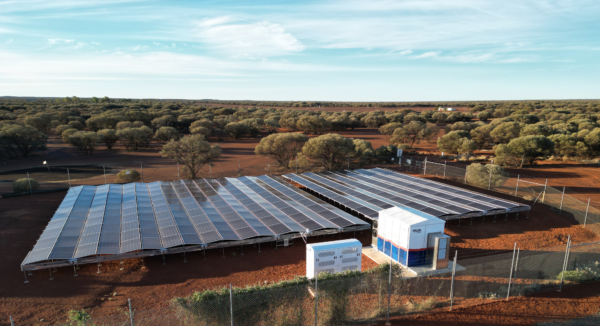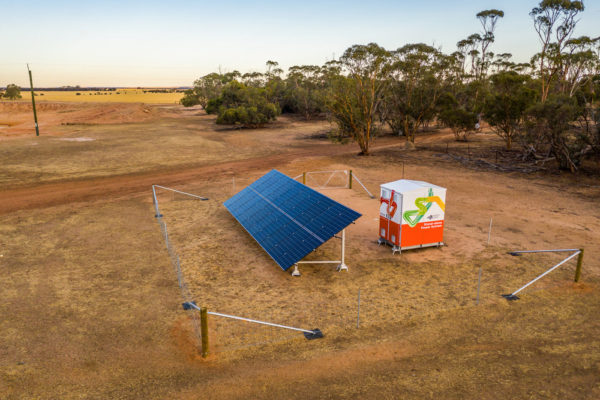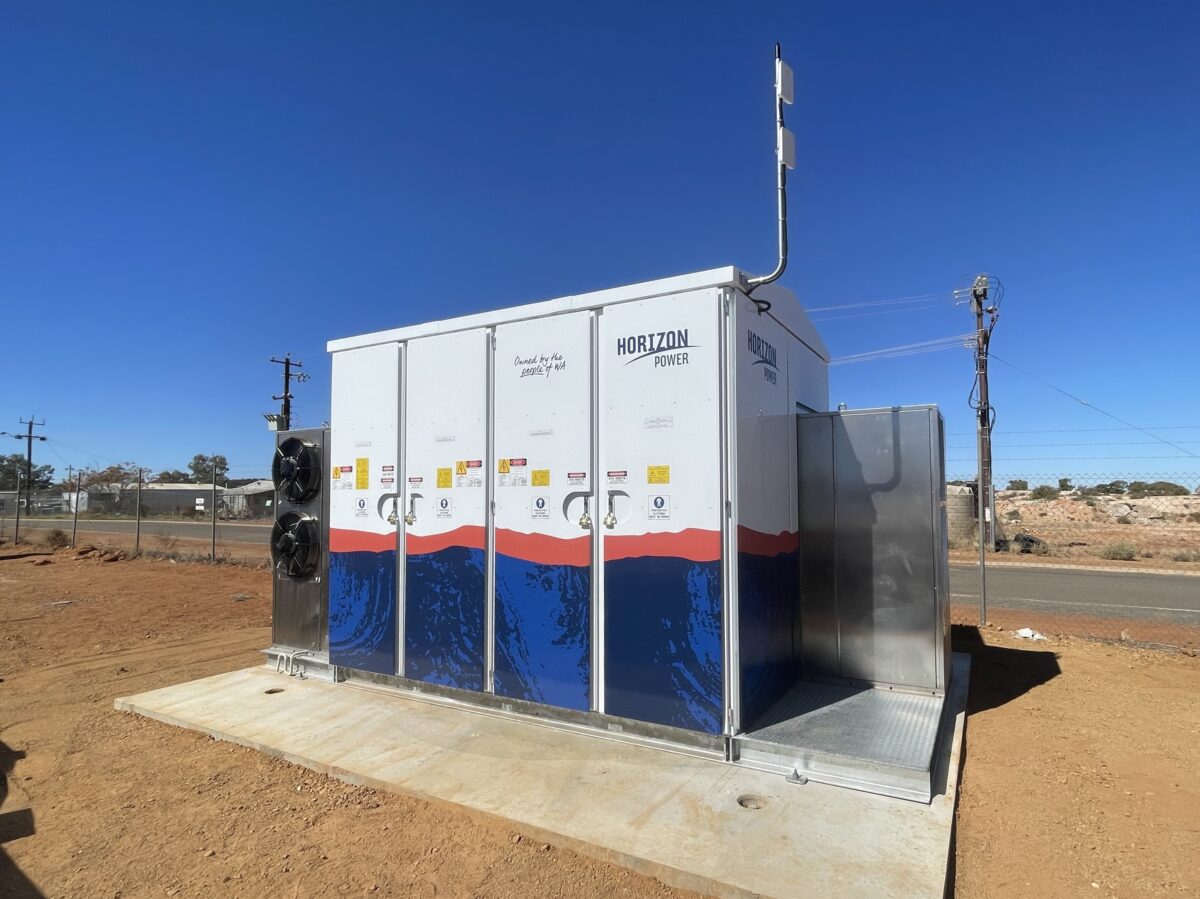Cue has become the fourth regional Western Australian town to receive a centralised solar farm and battery storage as the state government-owned utility Horizon Power rolls out a program to reduce remote towns’ dependence on diesel.
Cue’s 259 kW of solar farm and 336 kWh battery is now operational following the successful completion of reliability testing, Horizon Power has said. Similar, though differently sized, systems are already in operations in Wiluna, Yalgoo and Sandstone.

Image: Pacific Energy
The program is expected to reduce 2,100 tonnes of carbon dioxide emissions and save around $900,000 per annum.*
Norseman in the state’s Goldfield region and Meekatharra in the state’s midwest are expected to have similar systems installed in early 2024.
The Cue project was delivered in partnership with contractor Pacific Energy. Pacific have been working with the state’s other government-owned utility Western Power to roll out standalone power systems.

Image; Western Power
Both Western and Horizon Power have been working with standalone power systems (SPS) within the state’s islanded grids to decrease maintenance costs and increase rural power reliability. These systems primarily run on solar and batteries, and although they also still include backup diesel generators. However, the systems are sized to maximise renewables generation, with Western Power targeting 90% and Horizon Power 80% to 90%. The SPS are owned, monitored, and serviced by utility, which sells the electricity back to customers at their previous grid rate.
These standalone systems are mainly delivered to individual farms, but Horizon Power’s Midwest Solar Program, along with other microgrid projects, illustrate that the company is looking to scale similar concept systems up to encompass regional towns.
The state’s standalone power system rollout has, to date, been highly successful in terms of overall costs, decarbonisation, and customer satisfaction.
It is hoped that the rollout will completely reconfigure the state’s unruly grid over the next decade. That is, instead of a vulnerable and hard to manage interconnected system, the state will move towards thousands of decentralised off-grid systems based on renewable generation and storage.
–
* This article was amended on November 29 to clarify that Cue had not “switched” to solar and batteries, but had rather reduced its reliance on diesel via the system.
This content is protected by copyright and may not be reused. If you want to cooperate with us and would like to reuse some of our content, please contact: editors@pv-magazine.com.









By submitting this form you agree to pv magazine using your data for the purposes of publishing your comment.
Your personal data will only be disclosed or otherwise transmitted to third parties for the purposes of spam filtering or if this is necessary for technical maintenance of the website. Any other transfer to third parties will not take place unless this is justified on the basis of applicable data protection regulations or if pv magazine is legally obliged to do so.
You may revoke this consent at any time with effect for the future, in which case your personal data will be deleted immediately. Otherwise, your data will be deleted if pv magazine has processed your request or the purpose of data storage is fulfilled.
Further information on data privacy can be found in our Data Protection Policy.